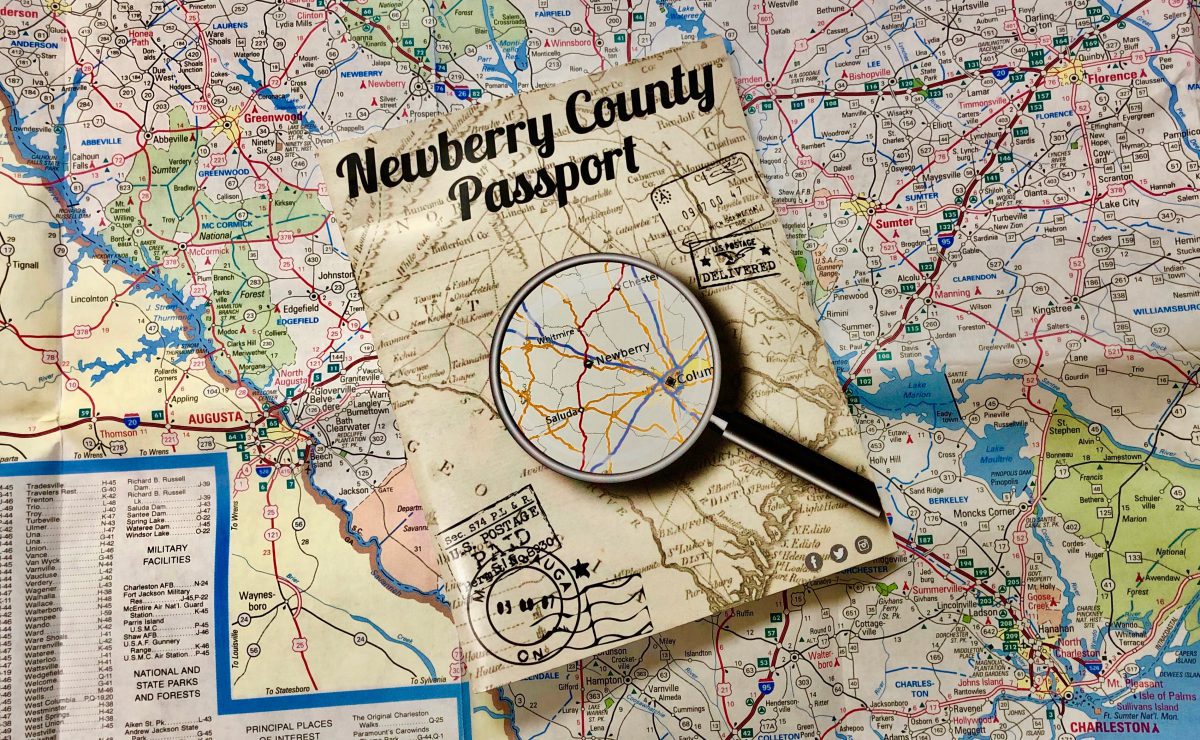The Leadership Newberry Class comprised of the Arts, Recreation and Tourism group has produced a Newberry County Passport for use in exploring all the wonderful opportunities within the county. The 48-page booklet includes entries on the history of Newberry County, Art, Recreation, Tourism, National Historic Register properties, Historical Markers, Festivals, and Municipalities. The passport will be officially launched on Tuesday, January 22, 2019 as part of the tour of the exhibit Crossroads: Change in Rural America in Newberry. SC Humanities helped support the Newberry County Passport with a Mini Grant in August 2018 and is supporting the tour of Crossroads in Newberry.
The Newberry Opera House has been a leader in the creation and implementation of the passport. Their hope is that the passport will be the go-to resource for tourists, new residents, and longtime residents who want to explore their own community. According to Molly Fortune, the Director of the Newberry Opera House, “Newberry is a county of hidden gems, and anyone could easily spend a week discovering the place in history Newberry has played in South Carolina and the development of the United States.” The Newberry Passport will be available at the Newberry Opera House, The Chamber of Commerce, any business that participates in the Downtown Development Association, all historic sites, chambers, and mayoral offices for municipalities
The Newberry Opera House is also the host venue for the tour of the traveling Smithsonian exhibit Crossroads: Change in Rural America, which will be on display through February 3, 2019. The passport will be launched at a special event on Tuesday, January 22, 2019 at 7:00 p.m. featuring scholar Tom Poland talking about “The Backroads of South Carolina.”
More information about the Newberry County Passport can be found HERE. The Newberry Opera House is located at
1201 McKibben St, Newberry, SC 29108.
The mission of SC Humanities is to enrich the cultural and intellectual lives of all South Carolinians. Established in 1973, this 501(c) 3 organization is governed by a volunteer 21-member Board of Directors comprised of community leaders from throughout the state. It presents and/or supports literary initiatives, lectures, exhibits, festivals, publications, oral history projects, videos and other humanities-based experiences that directly or indirectly reach more than 250,000 citizens annually.
